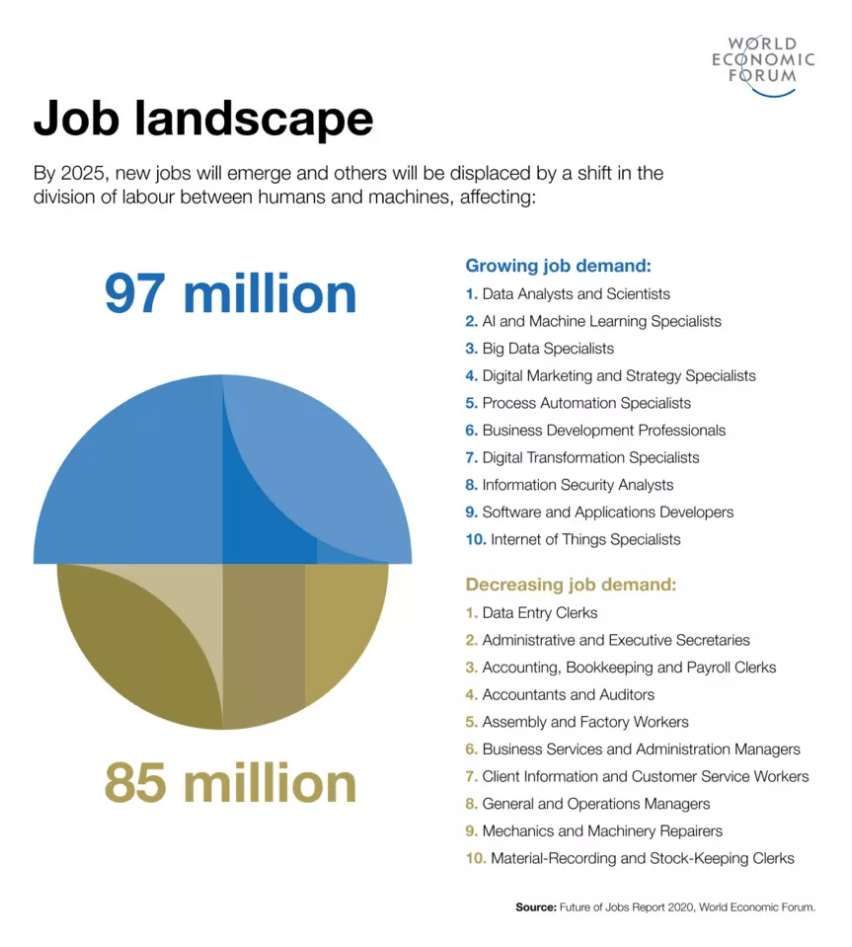
- COVID-19 has accelerated the automation of many tasks, leading some to fear artificial intelligence (AI) will take their jobs.
- But AI will create more jobs than it destroys.
- To embrace this change, companies and governments must focus on upskilling and reskilling.
The COVID-19 pandemic has accelerated technological advances and the automation of many routine tasks – from contactless cashiers to robots delivering packages. In this environment, many are concerned that artificial intelligence (AI) will drive significant automation and destroy jobs in the coming decades.
Just a few decades ago, the internet created similar concerns as it grew. Despite skepticism, the technology created millions of jobs and now comprises 10% of US GDP. Today, AI is poised to create even greater growth in the US and global economies. Sixty-three percent of CEOs believe AI will have a larger impact than the internet, according to PwC’s Annual Global CEO Survey.
While Fourth Industrial Revolution technologies driven by AI will continue to fundamentally change the world and the way we work and live, AI may not lead to massive unemployment. Instead, AI technology will create more jobs than it automates.
These newly created jobs will require new skills and necessitate significant investment in upskilling and reskilling young people and adults. But businesses and governments can – and must – work together to address this transition and embrace the positive societal benefits of AI.
Read full article @ WEF
ကြော်ညာ တွေဆိုတာ အောက် ပြတဲ့ ဟာတွေဖြစ်တယ်။ ကလစ်ပြီး သူတို့ website မှာ အနဲဆုံး ၁ minute လောက်နေပေးပါ
ကြော်ညာ 2
++++++++++++++
